Postgraduate education is a critical stage where students can further enhance their academic knowledge and research capability. The University of Macau (UM) offers a wide range of postgraduate programmes with comprehensive guidance and ample resources for students. In these programmes, students can engage in cutting-edge and interdisciplinary research to pursue their curiosity about different innovative topics, which will in turn help drive the progress of society.
Launching New Programmes to Support Social Development
The UM Graduate School is responsible for overseeing and developing postgraduate programmes. It works closely with faculties and institutes across the university to ensure that its offerings can respond to the evolving needs of society. Statistics from the GRS show that UM currently offers 80 postgraduate programmes, including doctoral degree programmes, master’s degree programmes, and postgraduate certificate/diploma programmes, with most of them being taught in English.
To respond to the demand of emerging industries in Macao and neighbouring regions, UM has launched a number of new postgraduate programmes in recent years. Many of them are interdisciplinary programmes, including the Master of Science in Data Science and the Master of Science in Cognitive Neuroscience. Both programmes cover subjects across areas such as arts and humanities, business administration, education, health sciences, science and technology, and social sciences. Starting from the 2023/2024 academic year, the university will further expand its offerings by launching new master’s programmes in philosophy, artificial intelligence, robotics and autonomous systems, coastal environment and safety, innovative materials, and medicinal administration.
As an international public university in Macao, UM is committed to fostering education and research collaborations with other institutions. This is reflected in initiatives including its joint PhD programmes with institutes under the Chinese Academy of Sciences and other leading institutions in mainland China to create education opportunities across different disciplines and regions.
UM also places great emphasis on mentorship in postgraduate education, recognising it as a critical factor in student growth and development. To this end, the university has built a high-quality international faculty team, drawing scholars from across the globe. 80 per cent of its faculty members come from outside of Macao, among them are members and fellows of academic societies of different countries. With abundant experience in teaching and research, this outstanding faculty team can ensure the delivery of quality postgraduate education at the university.
Interdisciplinary Research Opportunities
UM has formulated a ‘3+3+3+3’ strategic research layout. The four 3s refer to UM’s three state key laboratories (State Key Laboratory of Analog and Mixed-Signal VLSI, State Key Laboratory of Internet of Things for Smart City, and State Key Laboratory of Quality Research in Chinese Medicine), three emerging research fields (precision medicine, advanced materials, and regional oceanology), three interdisciplinary research fields (cognitive and brain sciences, data science, artificial intelligence and robotics), and three research platforms for the humanities and social sciences (Institute of Advanced Studies in Humanities and Social Sciences, Centre for Macao Studies, and Asia-Pacific Academy of Economics and Management).
This layout underpins the UM’s approach of knowledge integration in postgraduate education, which not only aims to enhance students’ professional knowledge and research skills, but also provide them with a wide range of opportunities for interdisciplinary learning and research. To meet the local demand for professionals and to promote economic development, the programmes also aim to foster interdisciplinary professionals capable of understanding and synthesising knowledge of different fields.
Under the supervision of Li Defeng, distinguished professor in the Department of English, and director of the Centre for Studies of Translation, Interpreting and Cognition (CSTIC), and Victoria Lei, associate professor in the Department of English, and vice director of CSTIC, Sissy Tang Yi, a PhD student at FAH, is conducting interdisciplinary research to explore cross-language processing and its relationship to cognitive abilities. Tang says that the interdisciplinary study in linguistics of their research team combines knowledge from both the humanities and technology, which is a hallmark of postgraduate education at UM. ‘The university places a great emphasis on interdisciplinary research because solutions to complex problems often lie in the intersection of different disciplines,’ says Tang.
Before graduating with a bachelor’s degree from UM in 2020, Tang received offers from several prestigious institutions in the United States, United Kingdom, and Hong Kong. However, she chose to continue her studies at UM in the Master of Arts in Translation Studies (English-Chinese) programme because of the university’s exceptional strengths and the strong faculty team in her field of study. ‘I am fascinated by the impact of language competence on cognitive functions,’ adds Tang.’ A solid foundation in linguistics, knowledge of neuroscience, and the mastery of research skills are crucial for gaining a comprehensive understanding of this subject. The university’s functional magnetic resonance imaging system provides me with invaluable resources for acquiring brain images and allows me to delve deeper into the cognitive and neural mechanisms associated with language processing.’
Creating a Favourable Environment for Postgraduate Studies
The university provides excellent support for postgraduates to enhance their knowledge and skills. For PhD students, UM has established the UM PhD Scholarship and the UM PhD Teaching and Research Assistant scheme, which offer a monthly stipend to recipients for up to four years. In addition, the university offers the University of Macau Scholarship for Science, Technology, Engineering and Mathematics (STEM) Programmes specifically for local master’s students. These opportunities for postgraduate students help them not only undertake overseas exchange trips and internships and present their work at leading international conferences, but also publish their papers in academic journals, and translate their research results into products and services.
UM is at the forefront of microelectronics research. Boasting a renowned faculty and research team as well as a state key laboratory in the field, the university offers exceptional opportunities for postgraduate students to expand their knowledge and skills. Many of these postgraduate students have received recognition for their work through presentations at international academic conferences. Sou Wai Kit, a PhD student in the Department of Electrical and Computer Engineering and the Institute of Microelectronics, presented his research findings for the first time in 2019 at an international conference in Lisbon, Portugal, under the guidance of his supervisor Associate Professor Lam Chi Seng. Over the past four years, Sou has contributed to eleven research papers on power quality and is the first author of three of them.
Supporting Postgraduate Students in Research Results Transfer
At the doctoral level, UM is dedicated to fostering a culture of collaborative innovation. This approach creates an atmosphere that encourages improvement in research standard and capability and the exchange of ideas across disciplines. The ‘3+3+3+3’ research strategy is guided by the principles of supporting research studies in key areas, strengthening talent development, and promoting collaboration through an open resource sharing model. The goal is to enable faculties, departments, and doctoral students at UM to start academic collaborations and complement each other to enhance the quality and impact of their research outcomes.
According to Sou, his interest in research was sparked during his undergraduate studies at UM. In his fourth year at the university, he was introduced to the research field of power quality by Prof Lam and this experience made him choose to continue his studies at UM. ‘UM’s curriculum inspires students to pursue innovation. For example, my learning and research experience at the university pointed me to the direction of industry-academia collaboration,’ he says. His research team is currently developing new power quality compensation devices and its control strategy, which can achieve energy saving by removing reactive power and harmonics in the electrical grid and appliances. Last year, Sou was awarded the Scientific and Technological R&D Award for Postgraduates by the Macao Science and Technology Development Fund. The energy compensation devices he developed are now in production and will soon be deployed in reservoirs in Macao.
UM has been steadfast in its commitment to providing full support to postgraduates, regardless of their professional field, so that they can break new ground and bring their innovative discoveries to the world. With the support of the UM Centre for Innovation and Entrepreneurship, Sou and his fellow PhD students had the opportunity to turn their research findings into market-relevant products in the Bank of China Trophy One Million Dollar Macao Regional Entrepreneurship Competition. Sou and his fellow students from the State Key Laboratory of Analog and Mixed-Signal VLSI founded a technology company in Macao. With the support of the university, they have ambitious plans to transform their research results and patents into market-ready products and use their expertise to promote industry-academia collaboration in Macao.
English / Davis Ip, Intern Ason Lei
Photo / Editorial Board, @font-face {font-family:PMingLiU; panose-1:2 2 5 0 0 0 0 0 0 0; mso-font-alt:新細明體; mso-font-charset:136; mso-generic-font-family:roman; mso-font-pitch:variable; mso-font-signature:-1610611969 684719354 22 0 1048577 0;}@font-face {font-family:"Cambria Math"; panose-1:2 4 5 3 5 4 6 3 2 4; mso-font-charset:0; mso-generic-font-family:roman; mso-font-pitch:variable; mso-font-signature:-536870145 1107305727 0 0 415 0;}@font-face {font-family:Calibri; panose-1:2 15 5 2 2 2 4 3 2 4; mso-font-charset:0; mso-generic-font-family:swiss; mso-font-pitch:variable; mso-font-signature:-536859905 -1073732485 9 0 511 0;}@font-face {font-family:Gadugi; panose-1:2 11 5 2 4 2 4 2 2 3; mso-font-charset:0; mso-generic-font-family:swiss; mso-font-pitch:variable; mso-font-signature:-2147483645 33554432 12288 0 1 0;}@font-face {font-family:"@PMingLiU"; panose-1:2 1 6 1 0 1 1 1 1 1; mso-font-charset:136; mso-generic-font-family:roman; mso-font-pitch:variable; mso-font-signature:-1610611969 684719354 22 0 1048577 0;}p.MsoNormal, li.MsoNormal, div.MsoNormal {mso-style-unhide:no; mso-style-qformat:yes; mso-style-parent:""; margin:0cm; mso-pagination:widow-orphan; font-size:12.0pt; font-family:"Calibri",sans-serif; mso-ascii-font-family:Calibri; mso-ascii-theme-font:minor-latin; mso-fareast-font-family:PMingLiU; mso-fareast-theme-font:minor-fareast; mso-hansi-font-family:Calibri; mso-hansi-theme-font:minor-latin; mso-bidi-font-family:"Times New Roman"; mso-bidi-theme-font:minor-bidi; mso-ansi-language:EN-GB;}.MsoChpDefault {mso-style-type:export-only; mso-default-props:yes; font-family:"Calibri",sans-serif; mso-ascii-font-family:Calibri; mso-ascii-theme-font:minor-latin; mso-fareast-font-family:PMingLiU; mso-fareast-theme-font:minor-fareast; mso-hansi-font-family:Calibri; mso-hansi-theme-font:minor-latin; mso-bidi-font-family:"Times New Roman"; mso-bidi-theme-font:minor-bidi; mso-ansi-language:EN-US;}div.WordSection1 {page:WordSection1;}Jack Ho, UM Reporter Silvia Zhou
Source: My UM ISSUE 121
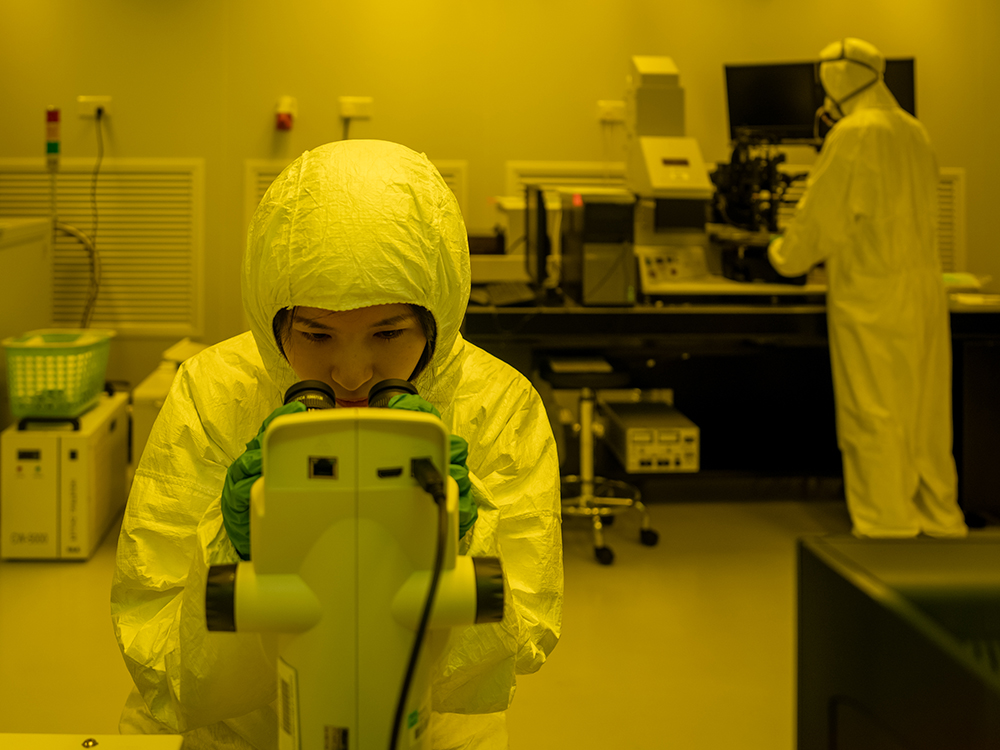
UM supports postgraduate students to transform their research results and patents into market-ready products
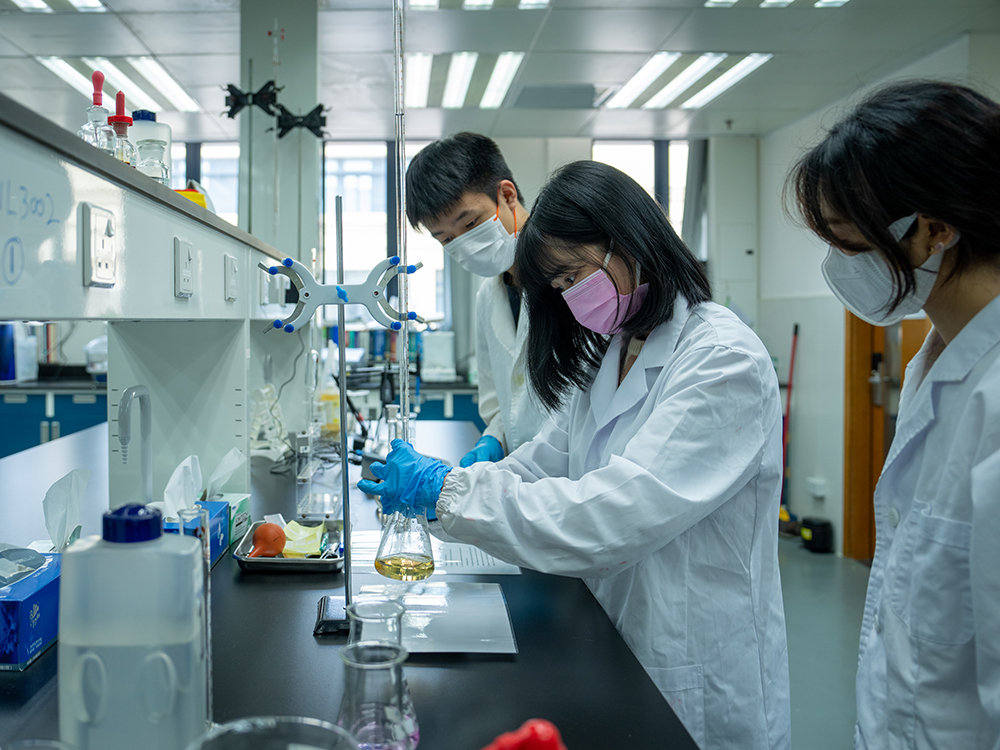
UM provides postgraduate students with a wide range of opportunities to expand their knowledge and skills
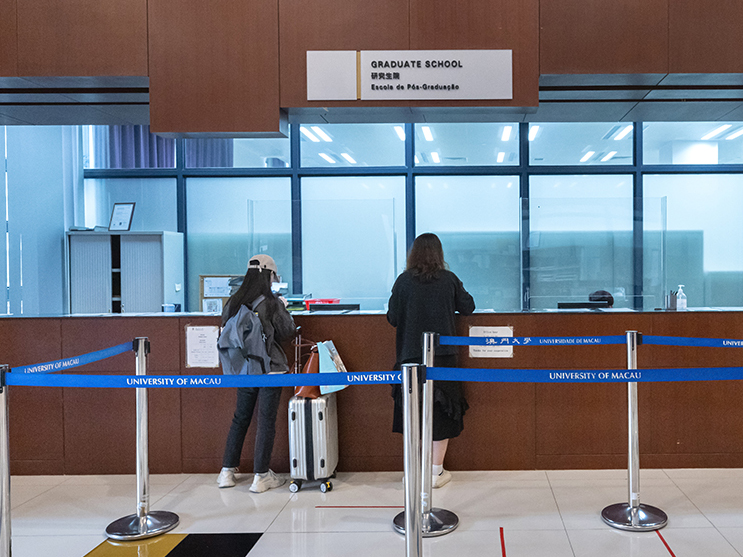
The UM Graduate School is responsible for overseeing and developing postgraduate programmes
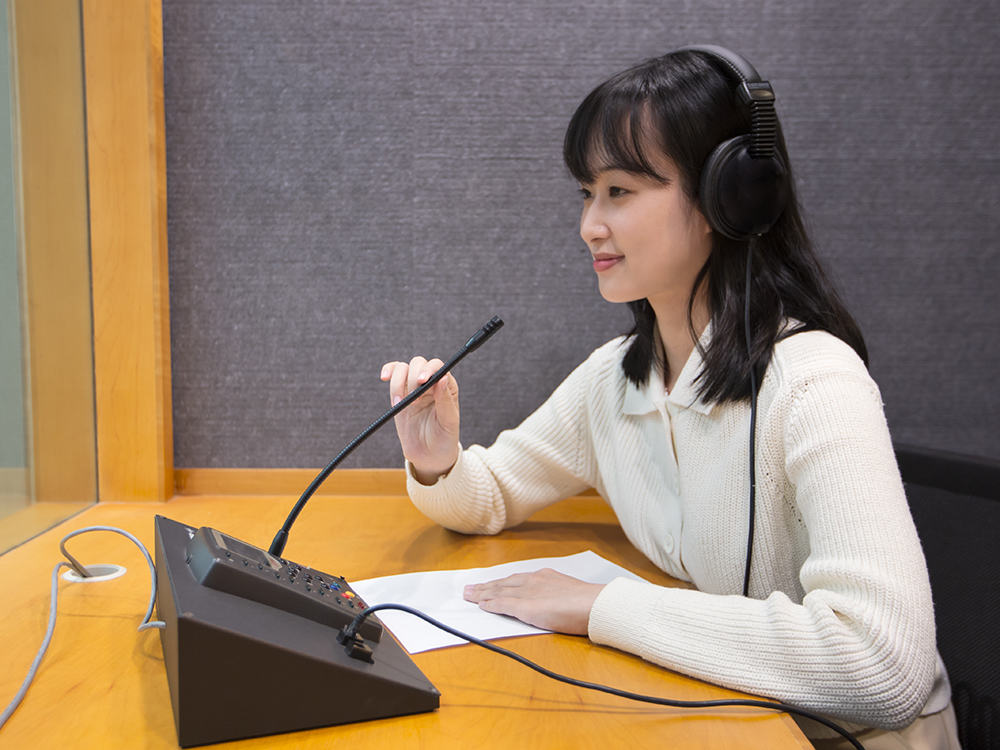
Sissy Tang Yi
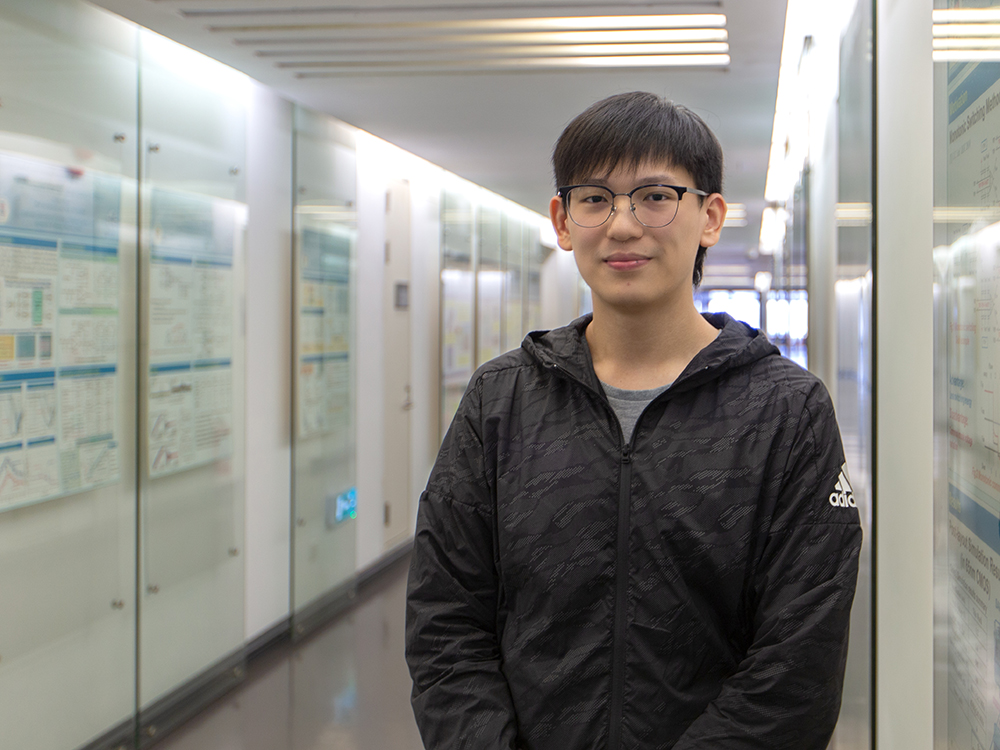
Sou Wai Kit
